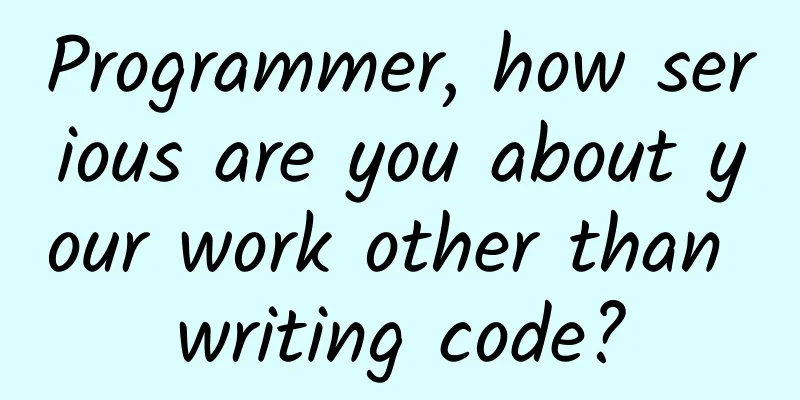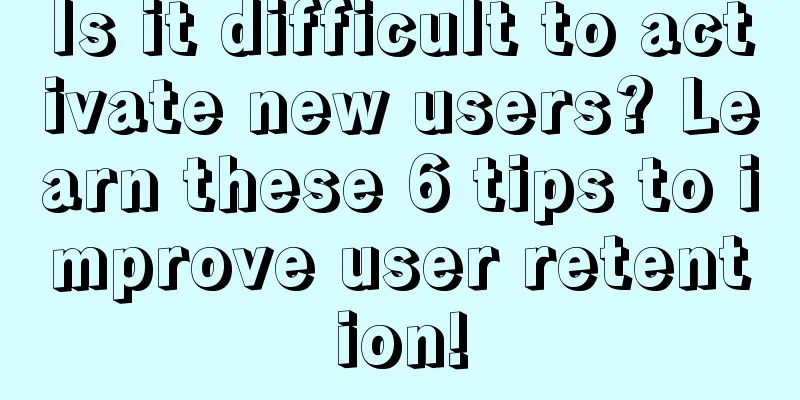Programmer, how serious are you about your work other than writing code?

|
The company arranged a promotion plan in the middle of the year and nominated several young men. They worked hard in their daily work and achieved remarkable results. However, when they submitted the promotion forms, they frowned. The main reason is that the forms are filled out too hastily and perfunctorily, making it difficult for outsiders to understand the value of the work. For example, the statement of work performance is "improved the speed and stability of system operation." As a direct supervisor, I certainly know what "improved the stability of system operation" means. But except for me, it is probably difficult for others to understand the true meaning of this sentence. If we change the statement to "through a quarter of work, the speed of system operation has been improved. The average page response time was about 2-3 seconds before, and now it has been reduced to 1-2 seconds, saving 4 man-hours for colleagues in the department every day; the stability of system operation has been improved. Before, colleagues would report that the speed was very slow and needed to be restarted constantly, but now it can be restarted for a week without restarting, and it has achieved seamless restart; before, the background process would get stuck every 2-3 days, seriously affecting everyone's work efficiency, but now it has been completely eliminated." In fact, what is being said is still the same content, and the data is also most clearly understood by the developers, but the effect is very different. So why haven't we done this? I come from a technical background, and based on my own experience, I think the main problem is that we are not serious enough: we can take every detail of the program seriously, but we cannot treat the work outside the program with the same attitude. From what I have observed, this problem is common among many technical personnel. In the world of programs, people can refine and polish their programs over and over again, and as a result, they subconsciously believe that the real world should also be like programs, with objective standards to follow for every action. So, if you do your job well, everything else will be there, and you can just go through various administrative procedures and follow various processes, and just deal with it in a formalistic way. Therefore, not taking these processes seriously is not a matter of energy, but mostly a matter of attitude. Although from the perspective of a leader, I certainly need and must work hard to support the promotion of competent personnel and ensure that everyone's hard work is rewarded. But on the other hand, as I mentioned in "How Technical Talents Can Improve Their Value", in the vast world outside of programs, "everything has objective standards" is just a beautiful assumption, and technical personnel should focus on improving their ability to express themselves. Specifically in this case, even if it is a form filling work that is not related to the program, it should be taken seriously and detailed and reliable data should be produced to prove the value of one's work. If we still need to be more serious, we can take a step back: two programmers have the opportunity to be promoted, one fills out the form hastily and perfunctorily, and the other takes the data seriously and gives detailed information. The two are the same in other aspects. In the end, the programmer who takes the data seriously and gives detailed information gets the opportunity to be promoted. This should be a matter of course. This question can also be extended to other areas: If you feel that you have done a good job within your "job scope", can you take "non-job" aspects less seriously? When I first started looking for a job, I wrote a resume by copying others and sent it out everywhere, but the results were not good. One day, another friend sent me a resume for reference. At first glance, I didn't think it was anything special. When he explained in detail that he had worked on this resume for a month, I discovered the trick: this resume is definitely not luxurious, but from the arrangement of the content, to the organization of the text, to the presentation of the data, all have been carefully thought out. The content listed is substantial, but there is no extra content, and it is absolutely not messy. If it were me, even if I could show so much content, I would never be able to show such high quality. I believe that it takes a month of careful revision to get every detail right. So I revised my resume carefully and repeatedly, and after a week of revision, I took it out again, and the response rate was significantly improved. Unfortunately, I found that there are still many students who are anxious to find a job, have taken various exams, and participated in various job fairs, but are unwilling to take the time to seriously revise their resumes. And a resume that is taken seriously and a resume that is casually perfunctory can actually be distinguished at a glance. Maybe you have carefully prepared for various certificates and various trainings before, but just because your resume is not done seriously, you have lost a lot of opportunities. Isn't it a pity? Why should we be serious about important things, and "not so important" things as well? I think, in addition to looking for reasons from personal attitudes and qualities, there is another objective reason that cannot be avoided: if the society or company is highly developed and professionalization is done well, everyone only needs to take the most important aspects seriously, and naturally someone can help you make up for other aspects to above the passing line, so the overall result will not be too bad - unfortunately, such an environment often does not exist around us, so being more serious about everything, even if it means turning yourself into an octopus, is probably not a bad thing. |
<<: How to please programmers?
>>: Record the judgment method of conventional jailbreak
Recommend
Kuaishou Short Video Social Marketing Manual
Recently, Kuaishou marketing platform released th...
Texas Hold'em Poker Asia Champion Private Message Camp: From Beginner to Master
Texas Hold'em Poker Asia Champion Private Mess...
One event converted 100,000 yuan! How can promotion take advantage of traffic to new heights?
Today I want to talk to you about how community f...
Google releases 2015 annual search rankings
Following Bing and Baidu, today Google also relea...
Developers' Notes: Hot Topics in Mobile Development in 2015
It has been 8 years since Steve Jobs launched the...
Channel promotion skills and conversion rate optimization solutions that money can’t buy
Today, I will share with you a few points mainly ...
Flink Principles and Implementation: Architecture and Topology Overview
To understand a system, we usually start with the...
Practical experience | Talk about the two doors of offline event promotion
Today we are discussing the data problems encount...
Why are all the ads I see on TikTok games?
Capture SSS-level Lingkun at the beginning, 5th t...
Xiaohongshu Promotion: After cleaning up KOLs, can we still “plant grass” well?
On May 10, Xiaohongshu announced the "Brand ...
Do you want to know about the AARRR model of operation?
After we have worked hard to create a product, we...
The five core actions of B Station’s brand operation and deployment!
Nowadays, Bilibili has become one of the most pop...
Five social marketing strategies for 2022
Searching for products and brands on social media...
Detailed explanation of Tik Tok recommendation mechanism!
No matter where you are, if you want to make mone...
Why is "Wolf Warrior 2" so popular? Because Wu Jing understands operations!
Wu Jing is a relatively unknown martial arts acto...









